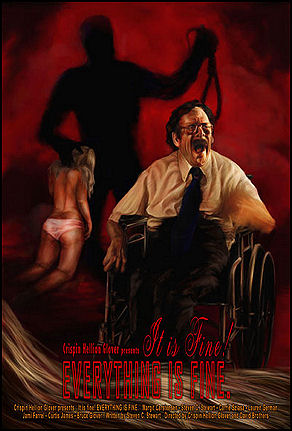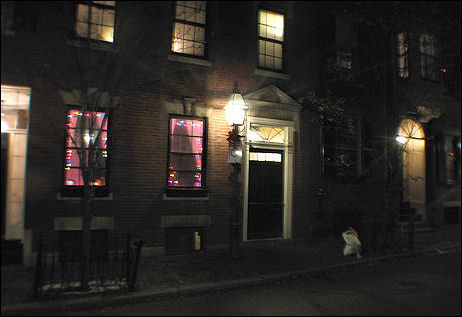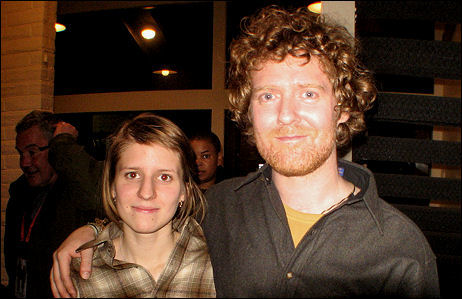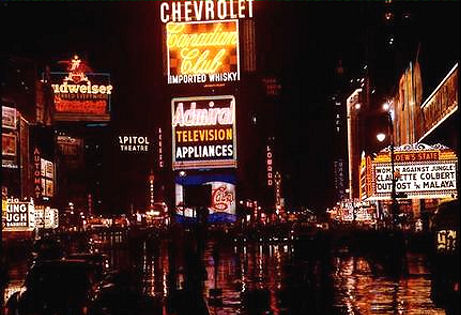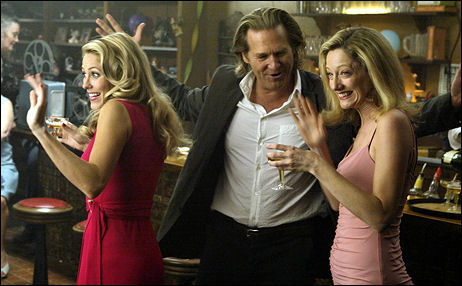Crispin Glover and David Brothers‘ It Is Fine! EVERYTHING IS FINE shows today (12.7), tomorrow (12.8) and Monday (12.10) at the American Cinematheque. It’s an intense, hallucinatory, soul-of-madness movie. The one-sheet pretty much says it all. A screaming, middle-aged, moustache-wearing nerd in a wheelchair (inspired by Francis Bacon‘s Pope paintings?), a shadow of guy holding a noose, a nearly naked Vargas girl on her knees. One look and you know that unbalanced people made this film.
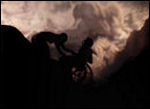


Paper‘s Dennis Dermody wrote that “what Diane Arbus was to photography, Glover is swiftly achieving as a filmmaker. Training his sardonic eyes on the strange and afflicted he achieves a mad dark poetry on celluloid.†I’ll concede that. The portion of It Is Fine that I saw at the ’07 Sundance Film Festival is mad, dark and not in the service of naturalism. Due respect, but I threw up my hands. I’m running from film to film, story to story…I haven’t got time for this shit. Obviously others do and some are into this film, and that’s fine. Everyone’s entitled.
But there’s no excuse for the words “it is fine” in a film title. No one except David Mamet has ever said the words “it is fine” in a conversation. When I first read the title I knew that Glover and Brothers and the late Steven C. Stewart (the afflicted guy who wrote the original screenplay) were playing a precious game.
